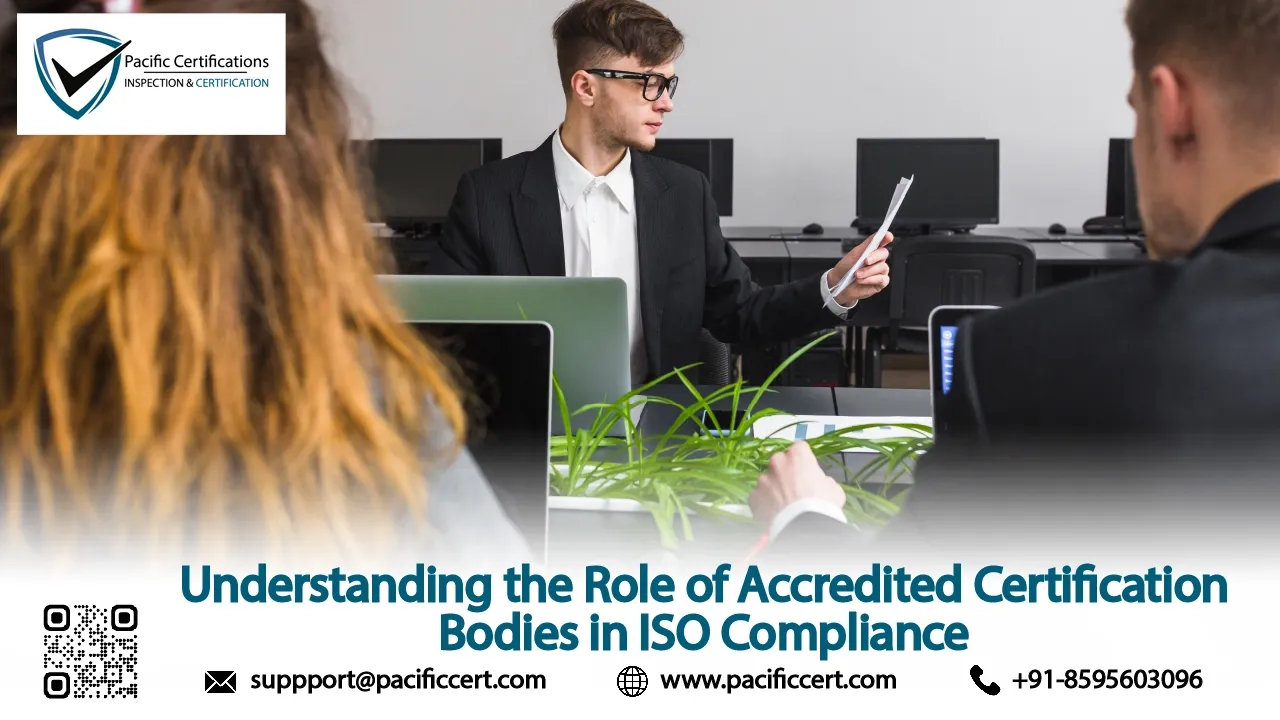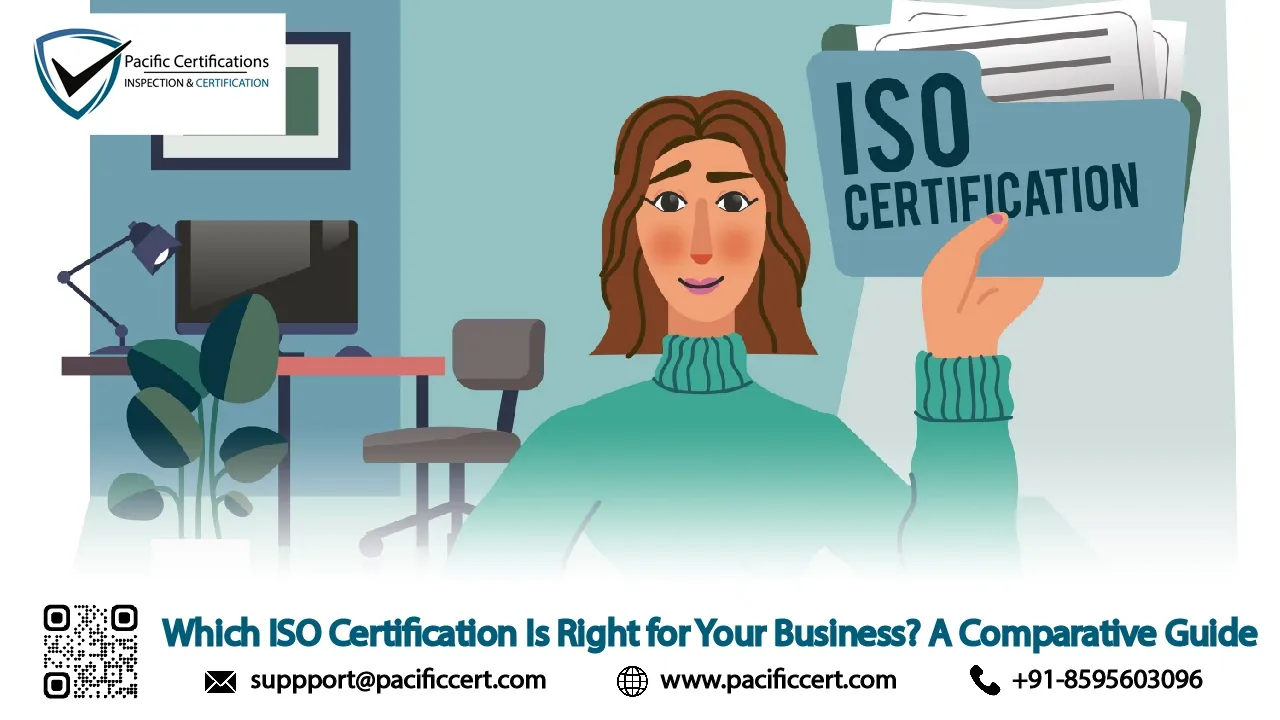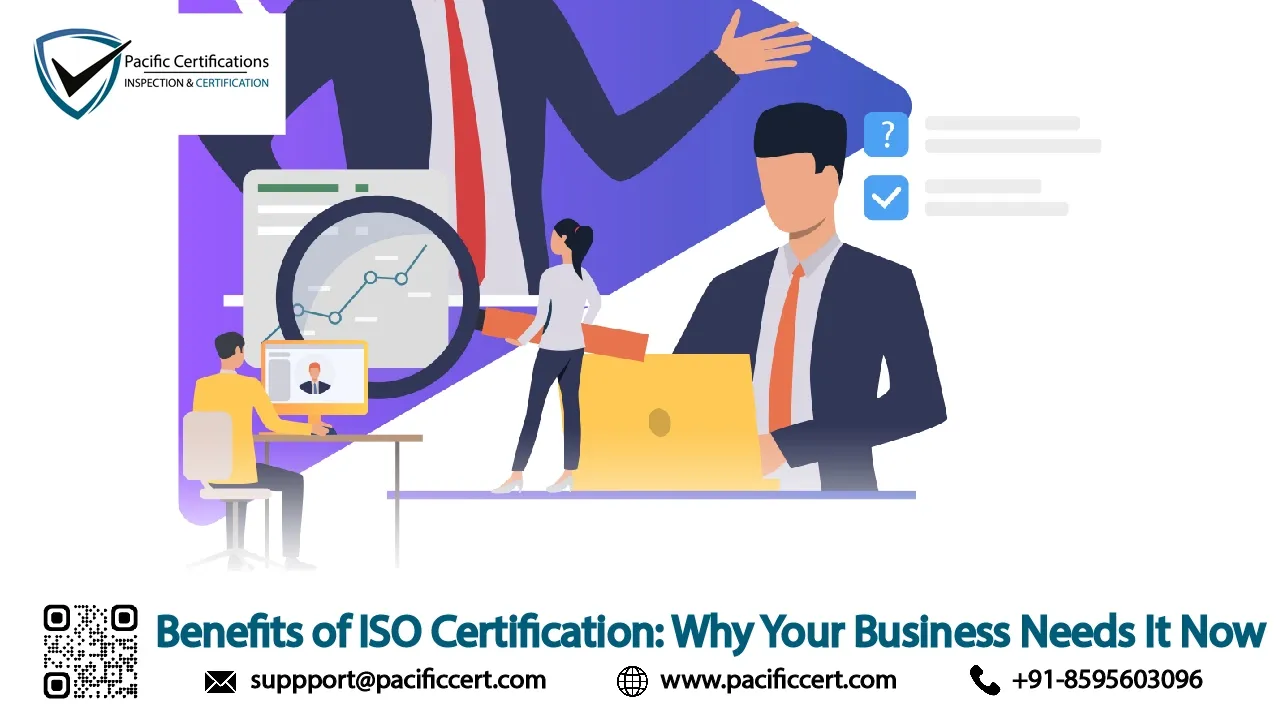
Introduction
The focus on Environmental, Social, and Governance (ESG) factors is growing exponentially in today’s global business environment. There is not only an expectation to pursue financial growth from the but also to act responsibly, ensuring that their operations follow the guidelines which align with sustainable and ethical practices. ISO certifications play a pivotal role in supporting this transition, providing a framework for organizations to implement best practices in ESG. This blog delves into the relationship between ESG and ISO standards, examining how ISO certifications can drive sustainable growth.
What is ESG and Why Does It Matter?
ESG is an approach to evaluating and operating businesses that goes beyond the sole focus of shareholder return. Instead, ESG in business takes into consideration the ecosystem, both internal and external, that businesses operate in and how they affect each other.
As companies seek to innovate, it's become evident that profit-centric pursuits alone can't address pressing global challenges. In fact, some of these challenges directly result from traditional business practices. As a result, businesses have been trying to understand what corporate ESG is and why focusing on ESG in business is crucial.
If you're a business leader, you may believe that corporate ESG considerations aren't your concern or could hinder profitability. Yet, it's crucial to recognize that ESG in business isn't just about compliance. It's a powerful tool for unlocking growth opportunities, reducing costs, and strengthening your brand in a world where ESG in business is steadily becoming synonymous with responsible and forward-thinking corporate practice.
Here is an overview of the three different components of ESG:
- Environmental: Includes the company’s impact on the environment, such as resource usage, waste management, and carbon emissions.
- Social: Concerns how a company manages relationships with its employees, suppliers, customers, and the communities in which it operates.
- Governance: Focuses on a company’s leadership, ethics, compliance, and corporate governance.
The increasing demand for transparency and accountability from stakeholders, consumers, and investors is pushing businesses to adopt ESG principles, creating a stronger, more resilient approach to long-term value.
What is the Role of ISO Standards in ESG?
ISO (International Organization for Standardization) certifications offer structured, globally recognized standards that enable businesses to integrate ESG principles into their operations. By adhering to these standards, companies can ensure they are meeting ESG requirements, thus enhancing their credibility and sustainable growth. Below are some key ISO standards that align with ESG:
ISO 14001:2015 - Environmental Management Systems
ISO 14001 is the internationally recognized standard for environmental management systems (EMS). It provides a framework for organizations to design and implement an EMS, and continually improve their environmental performance. By adhering to this standard, organizations can ensure they are taking proactive measures to minimize their environmental footprint, comply with relevant legal requirements, and achieve their environmental objectives. The framework encompasses various aspects, from resource usage and waste management to monitoring environmental performance and involving stakeholders in environmental commitments.
ISO 26000 - Social Responsibility
ISO 26000:2010 provides guidance rather than requirements, so it cannot be certified to unlike some other well-known ISO standards. Instead, it helps clarify what social responsibility is, helps businesses and organizations translate principles into effective actions and shares best practices relating to social responsibility, globally. It is aimed at all types of organizations regardless of their activity, size or location.
The standard was launched in 2010 following five years of negotiations between many different stakeholders across the world. Representatives from government, NGOs, industry, consumer groups and labour organizations around the world were involved in its development, which means it represents an international consensus.
ISO 45001:2018 - Occupational Health and Safety (OHS)
ISO 45001 is an international standard that specifies requirements for an occupational health and safety (OH&S) management system. It provides a framework for organizations to manage risks and improve OH&S performance.
The standard establishes criteria for an OH&S policy, objectives, planning, implementation, operation, auditing and review. Key elements include leadership commitment, worker participation, hazard identification and risk assessment, legal and regulatory compliance, emergency planning, incident investigation and continual improvement.
ISO 9001:2015 - Quality Management Systems (QMS)
ISO 9001 is a globally recognized standard for quality management. It helps organizations of all sizes and sectors to improve their performance, meet customer expectations and demonstrate their commitment to quality. Its requirements define how to establish, implement, maintain, and continually improve a quality management system (QMS).
Implementing ISO 9001 means your organization has put in place effective processes and trained staff to deliver flawless products or services time after time.
ISO 37001:2016 - Anti-Bribery Management Systems
ISO 37001 is a standard dedicated to establishing, implementing, maintaining, and improving an anti-bribery management system. This standard offers requirements and guidance for setting up systems designed to help organizations prevent, detect, and respond to bribery, as well as comply with anti-bribery laws and voluntary commitments applicable to their activities. It covers various forms of bribery (direct and indirect) within public, private, and not-for-profit sectors.
ISO 50001:2018 - Energy Management Systems
ISO 50001 is based on the management system model of continual improvement also used for other well-known standards such as ISO 9001 or ISO 14001. This makes it easier for organizations to integrate energy management into their overall efforts to improve quality and environmental management.
ISO 50001 provides a framework of requirements for organizations to:
- Develop a policy for more efficient use of energy
- Fix targets and objectives to meet the policy
- Use data to better understand and make decisions about energy use
- Measure the results
- Review how well the policy works, and
- Continually improve energy management.
How ISO Standards Drive Sustainable Growth?
With so many people talking about sustainability, ISO standards bring much-needed clarity to the conversation. More than ever, both consumers and manufacturers recognize the impacts of their choices and actions.
In the past, many of the costs of doing business were hidden, but now ISO standards allow them to be quantified and factored in to decision-making processes. This means more responsive and responsible businesses. ISO standards enable businesses to plan their future growth around meeting consumer expectations. They enable transparency about products and best practices for limiting their impacts.
Other factors are:
1. This boosts Operational Efficiency: The sharp guidelines the ISO standard provides help streamline an organizations process which helps to reduce waste and make good use of their resource. And ISO 9001 is a way of increasing the efficiency and effectiveness within processes, which also has an impact on operational excellence.
2. Enrich Risk Management: ISO certification aids companies to detect and manage environmental, social and governance risks. Businesses can deal with areas such as these before they rise, by implementing risk management frameworks like ISO 14001 and ISO 45001
3. Build Stakeholder Trust: ISO certifications add credibility on stakeholders like investors, regulators, customers as well as employees. An example would be ISO 37001 to ensure ethical business practices that create stakeholder trust.
4. Compliance: ISO certification will allow companies to comply with both local and international regulations! And if you work are with energy-related regulations or socially responsible practices, for example, ISO 50001 and ISO 26000 will take care of the best way to do it.
5. Encourages Investment: Investors are having great interest in taking ESG factors into consideration when making investment decisions. On a similar note, having ISO certifications such as the 14001 and now especially 37001 again signal that an organization is serious about ethical operations (& anti-bribery for companies) and advancing sustainable business practices which are important environmental considerations, all of increasing interest to ESG-focused investors.
Contact Us
At Pacific Certifications, we specialize in providing ISO certifications through thorough audits that help businesses demonstrate their commitment to quality, sustainability, and responsible governance. Our goal is to help organizations achieve recognized certifications that align with industry standards and contribute to sustainable growth.
For more information on how we can assist with your certification needs, feel free to contact us:
- Website: www.pacificcert.com
· Email: support@pacificcert.com
FAQs on ESG and ISO Standards
Q1: How is company’s ESG strategy supported by an ISO standard?
ISO standards offer structured frameworks that help organizations implement and maintain practices aligned with environmental sustainability, social responsibility, and governance. By complying with ISO standards like ISO 14001, ISO 26000, and ISO 45001, companies can integrate ESG principles into their operations, thereby improving their sustainability performance.
Q2: is it mandatory for all companies to have an ISO certification?
No, ISO certifications are not mandatory. still, many companies pursue them to increase the operational efficiency, improve compliance, and gain a competitive advantage.
For organizations aiming to attract investors or expand in global markets, ISO certifications are often essential.
Q3: Can ISO 9001:2015 improve a company’s ESG performance?
Indeed, ISO 9001:2015 has the potential to enhance someone ESG performance through an entire quality management in a company. The focus on customer and process helps with the G in ESG, while regulatory compliance is such an essential factor to managing socially responsible programs.
Q4: What is the role of ISO 50001 in ESG?
ISO 50001 focuses on improving energy management, reducing energy consumption, and enhancing energy efficiency. This directly supports the environmental component of ESG by reducing carbon footprints and contributing to sustainability goals.
Q5: How can ISO certifications help attract investors focused on ESG?
ISO certifications help demonstrate that a company is serious about its commitment to ESG principles. Investors increasingly seek businesses with strong ESG practices, as these companies are seen as lower risk and more sustainable in the long run.
Ready to get ISO certified?
Contact Pacific Certifications to begin your certification journey today!
Suggested Certifications –
Read more: Pacific Blogs



